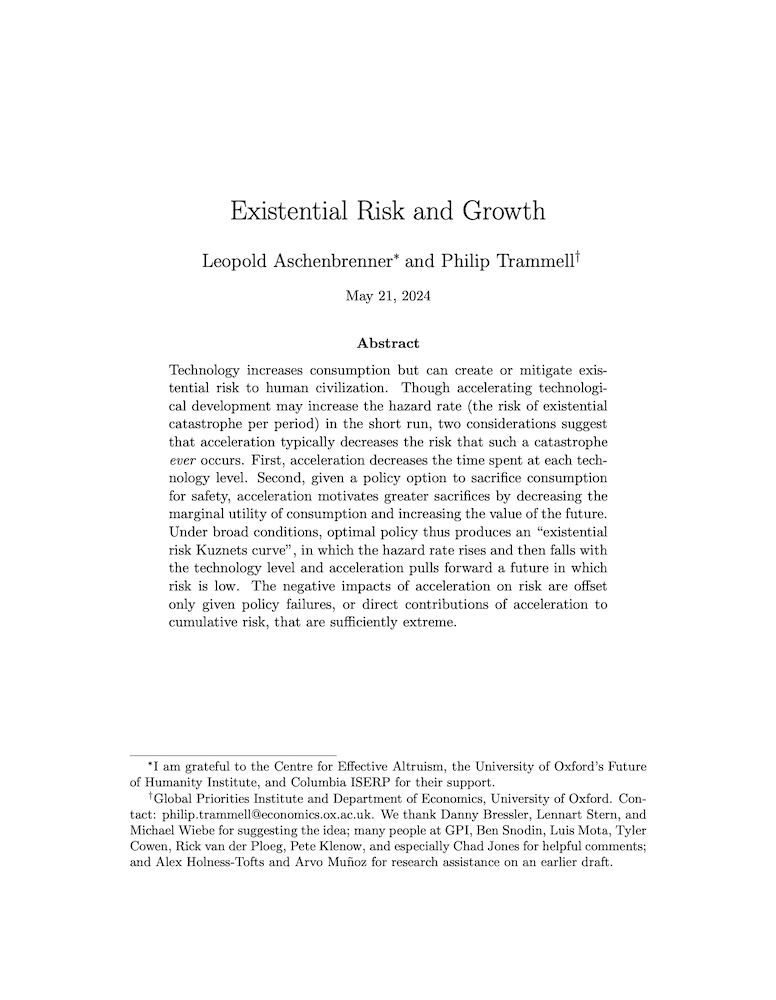Existential Risk and Growth
Leopold Aschenbrenner and Philip Trammell (Global Priorities Institute and Department of Economics, University of Oxford)
GPI Working Paper No. 13-2024
Technology increases consumption but can create or mitigate existential risk to human civilization. Though accelerating technological development may increase the hazard rate (the risk of existential catastrophe per period) in the short run, two considerations suggest that acceleration typically decreases the risk that such a catastrophe ever occurs. First, acceleration decreases the time spent at each technology level. Second, given a policy option to sacrifice consumption for safety, acceleration motivates greater sacrifices by decreasing the marginal utility of consumption and increasing the value of the future. Under broad conditions, optimal policy thus produces an “existential risk Kuznets curve”, in which the hazard rate rises and then falls with the technology level and acceleration pulls forward a future in which risk is low. The negative impacts of acceleration on risk are offset only given policy failures, or direct contributions of acceleration to cumulative risk, that are sufficiently extreme.
An earlier version of the paper was published as GPI Working Paper No. 6-2020, and is available here.
Other working papers
The asymmetry, uncertainty, and the long term – Teruji Thomas (Global Priorities Institute, Oxford University)
The Asymmetry is the view in population ethics that, while we ought to avoid creating additional bad lives, there is no requirement to create additional good ones. The question is how to embed this view in a complete normative theory, and in particular one that treats uncertainty in a plausible way. After reviewing…
The epistemic challenge to longtermism – Christian Tarsney (Global Priorities Institute, Oxford University)
Longtermists claim that what we ought to do is mainly determined by how our actions might affect the very long-run future. A natural objection to longtermism is that these effects may be nearly impossible to predict— perhaps so close to impossible that, despite the astronomical importance of the far future, the expected value of our present actions is mainly determined by near-term considerations. This paper aims to precisify and evaluate one version of this epistemic objection to longtermism…
Should longtermists recommend hastening extinction rather than delaying it? – Richard Pettigrew (University of Bristol)
Longtermism is the view that the most urgent global priorities, and those to which we should devote the largest portion of our current resources, are those that focus on ensuring a long future for humanity, and perhaps sentient or intelligent life more generally, and improving the quality of those lives in that long future. The central argument for this conclusion is that, given a fixed amount of are source that we are able to devote to global priorities, the longtermist’s favoured interventions have…

